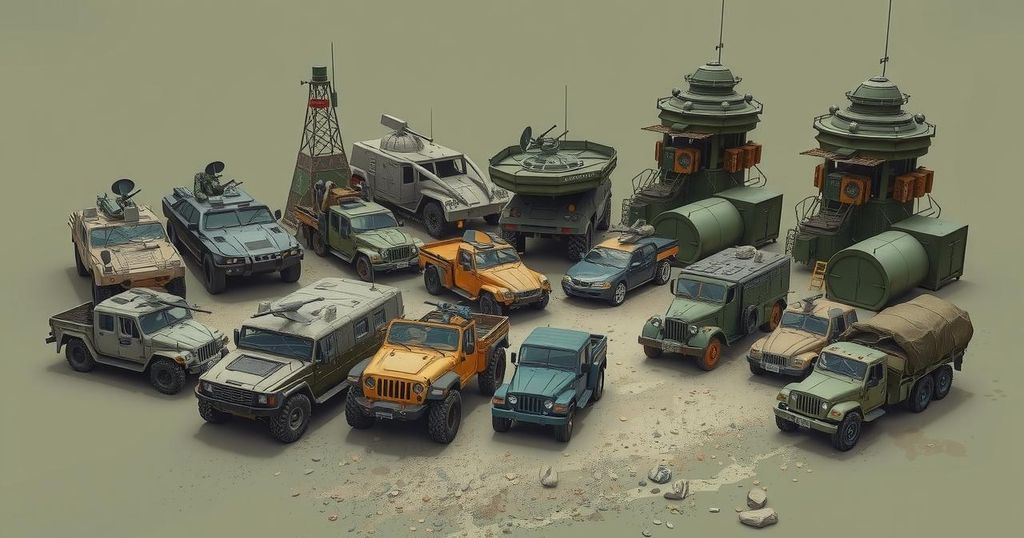Bangladesh faces significant political instability as pro-Pakistan Lt. General Mir Mushfiqur Rahman is under surveillance for a potential coup. Notable military figures are implicated, with an ongoing conspiracy against General Waqar, who favors stability and ties with India. The situation remains volatile, with urgent calls for free elections to restore order.
Recent developments in Bangladesh indicate a potential military coup, as pro-Pakistan Lt. General Mir Mushfiqur Rahman has come under surveillance by military intelligence, specifically the DGFI. This situation arises amid significant political unrest, with warnings of imminent upheaval in Dhaka. Although many senior officers support the removal of General Waqar, attendance at a recent meeting was notably poor, signaling divisions within the military ranks.
In connection with the alleged coup, names of ten general officers commanding (GOC) have surfaced, including Major General Abul Hasnat Mohammad Tariq and others who are reportedly backing Lt. General Rahman. The presence of these senior officers in the conspiracy raises concerns about the military’s internal dynamics amidst political turbulence. Reports suggest that some former military leaders may collaborate with anti-Waqar officers and the Jamaat-e-Islami to establish a new political entity, further complicating the situation.
Lt. General Rahman is recognized for his pro-Islamist views and is believed to be strategically aiming to seize control of the army. He previously engaged with Pakistani intelligence officials to further Pakistan’s interests in Bangladesh. In contrast, General Waqar, who is aligned with centrist ideologies and favors relations with India, has played a crucial role in maintaining stability. His leadership has been pivotal, especially during periods of heightened Islamist threats to governance.
While General Waqar has suggested that the military may need to take a more active role in governance due to deteriorating law and order, analysts argue that free and fair elections are necessary to restore stability in Bangladesh. The current political environment remains precarious, and the next few days could be critical for the nation’s future.
For those interested in more updates, the discussions surrounding these events can be further explored through various courses and educational offerings in current affairs, strategy, and political dynamics.
In conclusion, the situation in Bangladesh is increasingly tense, with potential coup activities involving high-ranking military officials under scrutiny. The precarious balance between pro-Islamist and centrist military leadership may dictate the nation’s future as both political and military strategies evolve. The urgency for free elections to restore stability is a recurring theme amidst this turmoil, highlighting the intersection of governance, military influence, and national security in Bangladesh.
Original Source: m.economictimes.com




